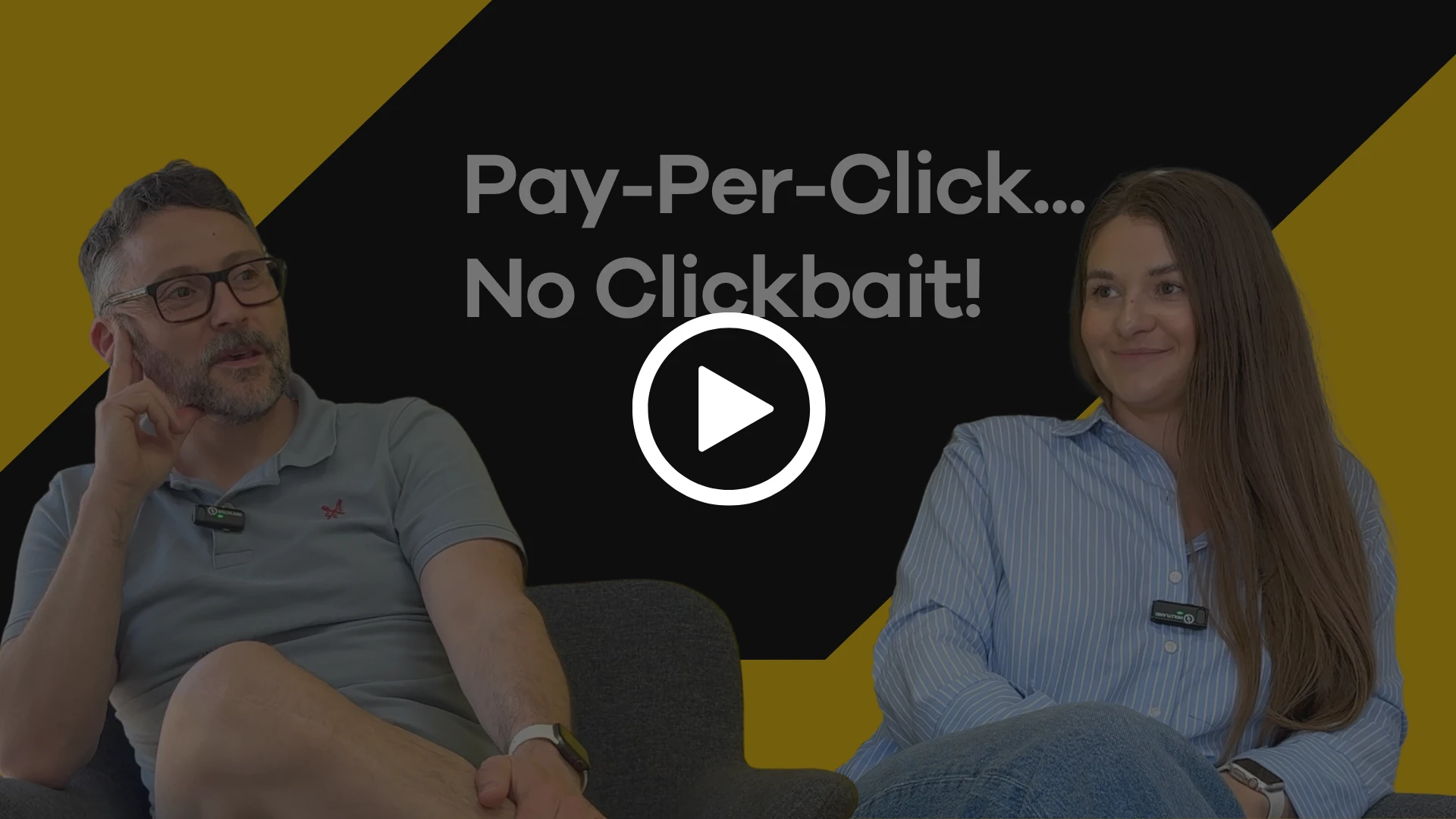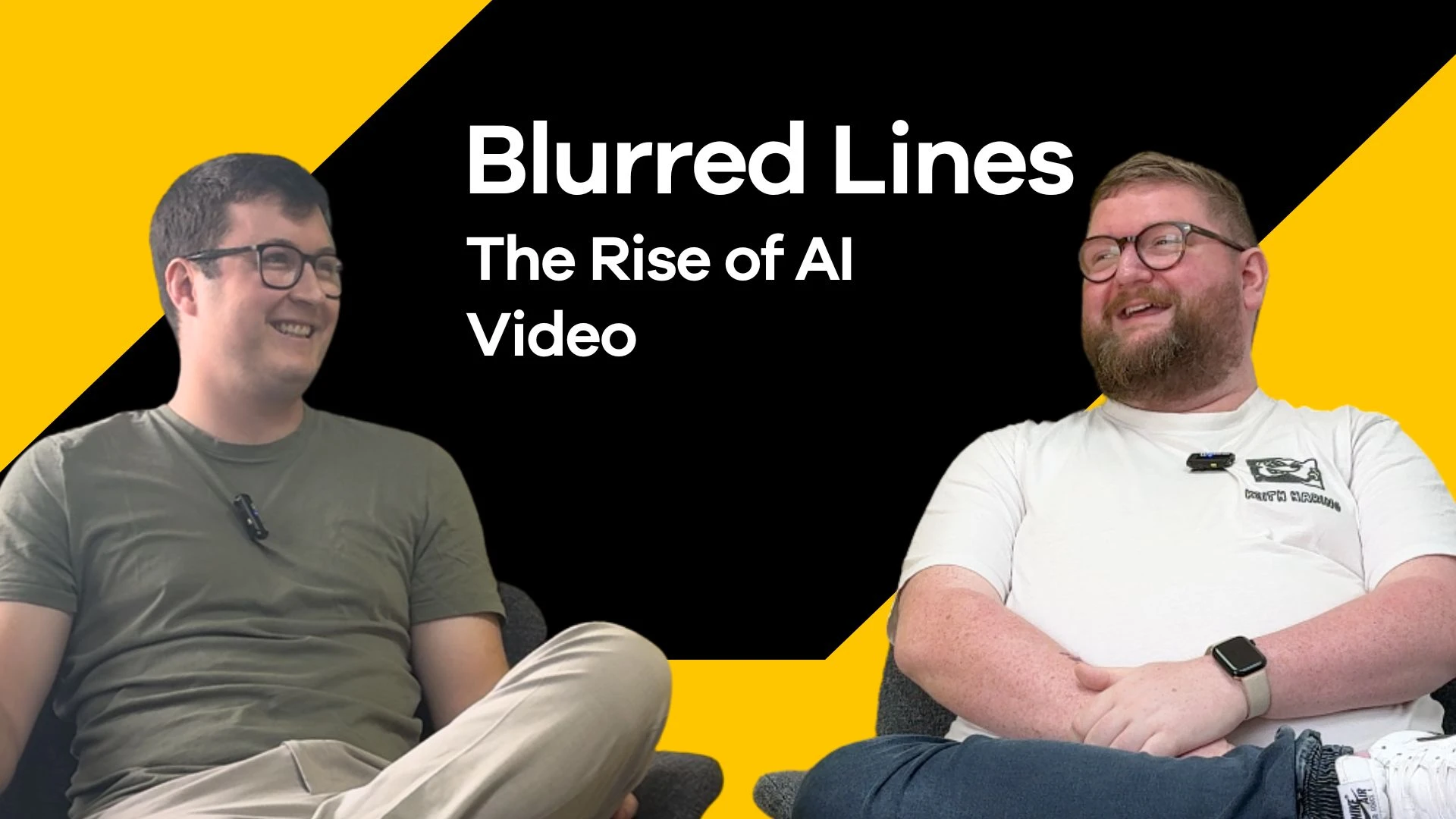
Eyeweb
Unplugged:
Pay-Per-Click... No Clickbait! | Episode 10 | Eyeweb Unplugged
In this episode of our podcast, we sat down with Georgia from the Eyeweb team to break down what she does as a digital marketing specialist with a focus on SEO and PPC. While some teams separate the two, Georgia works across both areas. And for good reason… they work best together.
About the episode
SEO vs PPC – What’s the Difference?
Here’s the short version. SEO (Search Engine Optimisation) is your organic strategy. It’s about building your website’s visibility naturally over time. PPC (Pay-Per-Click) is the paid route to the top of search results.
Think of SEO as the slow burn. It takes time but pays off long term. PPC gives you visibility quickly, but it needs careful planning.
Setting Up for Success
Whether you’ve run PPC campaigns before or you’re completely new to it, setup is key. Georgia explains that the first step is understanding what the client wants to achieve. More traffic? More enquiries? More sales? Better brand awareness?
Once that goal is nailed down, the next step is deciding what you actually want to promote. Specific services, products, or even seasonal campaigns? Focusing your campaign ensures your budget is well spent.
Keyword research comes next. You need to know what people are searching for, how competitive those searches are, and what each click might cost you. Not all clicks are worth the same.
Campaign Types and Structure
PPC campaigns come in different formats:
Responsive Search Ads: The text ads you see at the top of Google. You give Google multiple headlines and descriptions, and it picks which to show.
Shopping Ads: Product images that appear when you search for something like "blue polo shirt"
Display Ads: Visual banners that appear on other websites
Video Ads: Often seen on YouTube
Choosing the right type depends on what you want to achieve. Structure also matters. A campaign for clothing, for example, might have ad groups for shirts, jeans and shoes, helping keep your ads relevant.
Keep Control of Your Campaigns
Google often makes recommendations for your campaigns. One of the most common is increasing your budget. Sometimes those recommendations are useful. Sometimes they’re not.
Georgia points out the importance of reviewing these suggestions regularly. There are settings that allow Google to apply changes automatically. If left unchecked, that can lead to wasted spend. Keeping control of your keyword match types is also crucial. Broad match can be risky if not monitored properly.
It’s Not Just About Clicks
Clicks on your ads might look impressive. But what really matters is what happens after that. Are people making enquiries? Buying your products? Booking a service?
Google Ads provides metrics to help track this. You can look at cost per conversion and return on ad spend. Spending £50 to generate a sale worth £10,000? That’s solid. Spending £50 to sell something worth £30? Less so.
Not every sale happens straight away. In many industries, especially where the buying process is longer, results can take weeks or even months. It’s worth factoring that in when judging the success of a campaign.
Look at the Bigger Picture
PPC isn’t a quick fix. It works best when it’s part of a wider strategy. Georgia highlights the importance of the full customer journey. A well-structured campaign can drive traffic, but your website still needs to do its job. If the landing page doesn’t work well or lacks trust signals, visitors won’t convert.
SEO is still important. PPC can bring short-term visibility, but SEO helps build long-term growth. Add in social media, email marketing and good content, and you’ve got a strategy that can work across multiple channels.
If you’re considering PPC, the best place to start is with clear goals. Understand who your audience is and stay involved in reviewing and refining your campaigns. That’s where real value comes from.
And if you need help, Georgia knows her stuff.
Blurred Lines - The Rise of AI Video | Episode 11 | Eyeweb Unplugged
In this episode of our podcast, we sat down with Shaun and Chris to explore the latest advancements in AI video technology and what they mean for marketing and content creation. From lifelike avatars to ultra-fast production tools, we discussed both the exciting opportunities and the challenges these new technologies bring, particularly when it comes to trust and authenticity online.



